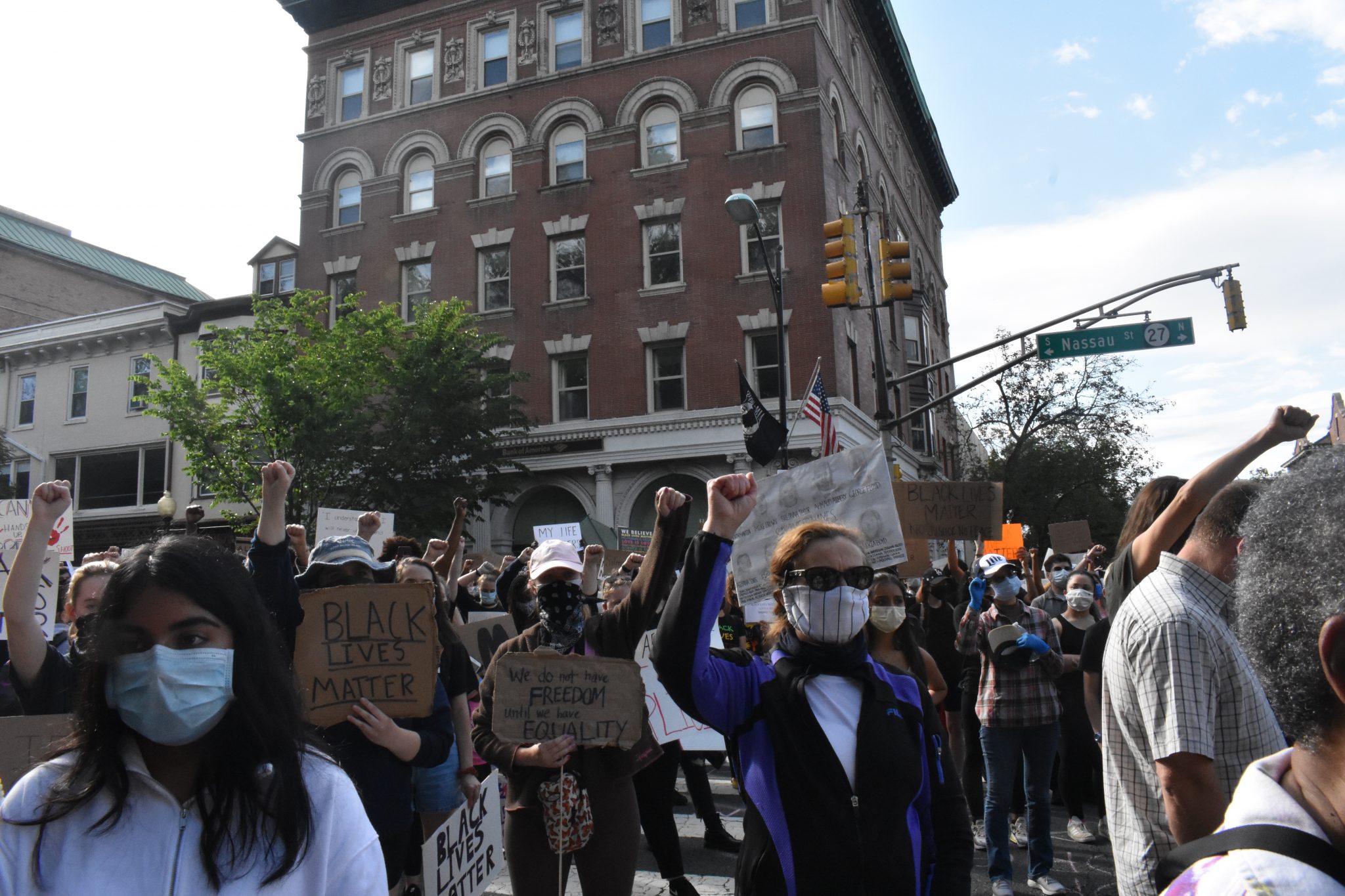In the aftermath of former Minneapolis police officer Derek Chauvin being found guilty in April on all three counts over the death of George Floyd, a virtual roundtable discussion took place on the trail of Chauvin and death of Floyd.
On April 20, Chauvin was found guilty of second-degree murder, second-degree manslaughter and third-degree murder. In 2020, the death of Floyd would not only spark protests in Minneapolis, but across the country and the world.
The roundtable hosted on April 29 by Princeton University’s Office of Diversity and Inclusion and Not in Our Town Princeton featured panelists Jonathan Mummolo, a Princeton University assistant professor of Politics and Public, Civil Rights Attorney Caroline Clarke and George James, a therapist and assistant professor at Thomas Jefferson University.
Panelists were first asked by moderator Soorya Baliga if they would have predicted this outcome based on recent history, and if they are surprised.
“I think anytime you are relying on a jury reaching a unanimous verdict it is not a forgone conclusion, especially when the defendant is a police officer in the United States,” Mummolo said. “That said, this case has some unusual features, most notably complete video evidence of the entire horrific events and testimony from fellow police officers condemning Chauvin’s actions. I think the fact that even though with all of that evidence the outcome was still in some doubt really says something about where we are when it comes to police accountability.”
James said there was a heightened level of anxiety for himself and people he’s worked with.
“The heightened level of anxiety that so many people felt says that they weren’t sure what to expect. There was a sense that could lead to a result that was not desired at least for a lot of people,” he said. “I think on top of that because of the past in so many cases where you thought there was evidence, video and testimony that would prove or show that this person should be guilty or something should happen and then it didn’t. So I think I could not predict the outcome and was hoping with everything that was there.”
Clarke was somewhat surprised by the verdict.
“I typically do not try to predict the outcome of any cases that involve police abuse. I think this case was unique because I think America knew the whole world was watching and I believe those jurors knew it, too,” she said. “In addition to that we had a whole year of protests. Young people never stopped protesting and I think we had the COVID-19 factor. Typically, we are indifferent to the plight of black folks and everyone is trying to live their lives and move along. COVID-19 forced us as a nation to sit still.”
Another topic posed to the panelists focused on if they foresee the verdict from the trial impacting law enforcement policy and procedures.
“No I do not,” Clarke said. “Law enforcement practices and procedures have been around as long as Black people have been around America and we have died at the hands of police every century, every single week and nothing has changed.
“In fact, I believe within 24 hours after the Chauvin verdict there were six police shootings of Black and Brown people. I believe it was Princeton University Professor Eddie Glaude who said in the same ways we are joyful about the Chauvin verdict watch out, because the police are going to be coming back in a way we need to be prepared for. I’m hopeful, but I’m not sure that is really going to make a difference,” Clarke said.
Clarke added that what she does think will make a difference are the young people in the streets joined by the power of the ballot box.
Mummolo agreed with Clarke that he also has doubts about seeing meaningful changes to policing in the near future.
“I think in general real change is costly and difficult. Political institutions always resist it and police are definitely a political institution,” he said. “It is much easier to announce superficial change such as enhanced training or community outreach effort than to address the deep institutional problems like a lack of meaningful oversight and accountability for misconduct.
“There are some positive signs. Continued widespread protests and media coverage of police-involved killings have really placed police reform on the political agenda in a more permanent way. I think the rise of cellphone and body cam footage is pivotal,” Mummolo said.
During the discussion, James mentioned a point that had been raised in a prior forum he participated in about police officers leaving the job and how that is already starting to cause some fear and anxiety.
“Which, then I think can push against the thought of reform. Which goes back to the narrative that the thought of taking care of people who are in a marginalized position or marginalized identities or people who are being mistreated is for sometimes a quick moment,” he said. “Then we go back to supporting those who are in a position of power. I think that is a concern of real change could mean disrupting what we see, could mean seeing things go in a way that we might not intent or want and see people leave the job or that some people might need to check their bias. Real change is not easy and is intense and could have some sacrifices and consequences.”
Other topics raised and discussed at the roundtable included Chauvin’s sentencing and charges; legislation; what precedent they anticipate this case will set for future police involved trials; and the mental, emotional and psychological effect of communities witnessing events such as killing of George Floyd over time.
Editor’s note: As of press time, reports stated Chauvin’s lawyer was calling for a retrial based on the failure to sequester the jurors.

